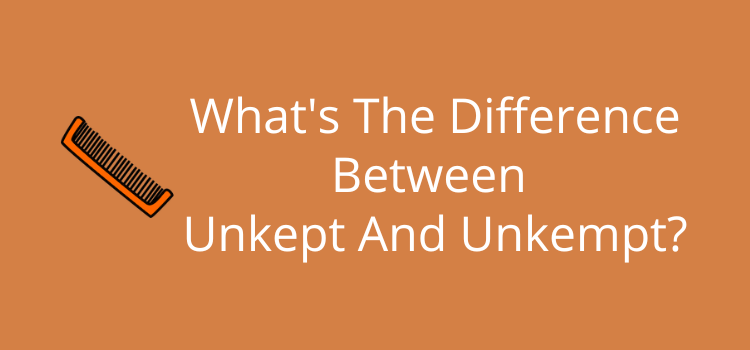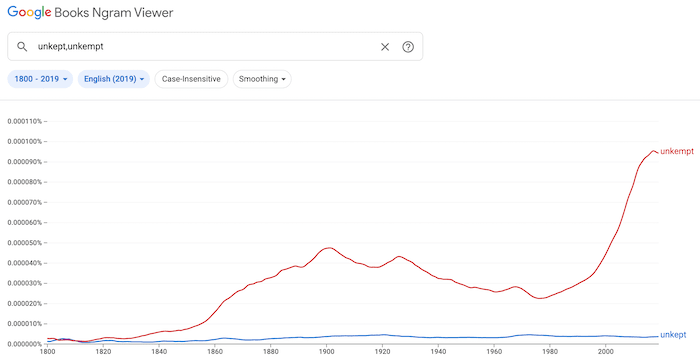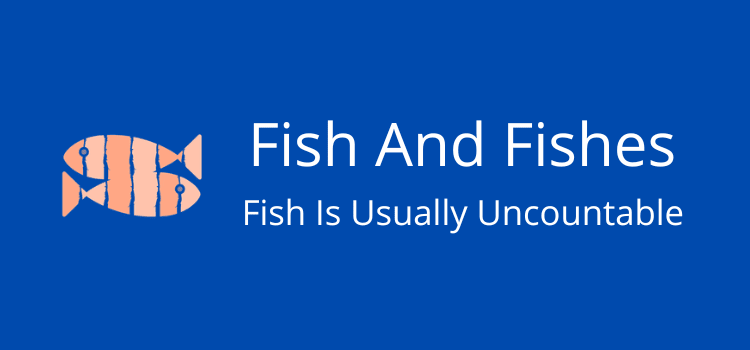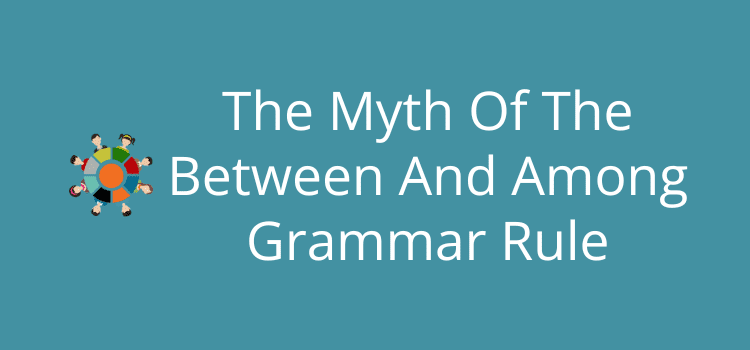
When you see unkept and unkempt, you might think they are the same word with alternative spelling.
The only difference is that one has an M.
Perhaps one is an archaic version and the other the modern equivalent.
But no, these two words are different, with separate meanings.
Researching and extending your vocabulary
English is full of confusing words.
For writers, however, that’s a challenge we face every day.
Yes, you can do a quick online check if you are unsure of a word’s spelling.
But digging deeper and hitting your dictionary and thesaurus gives you much more information.
In the case of unkept or unkempt, I wasn’t 100% sure I knew the difference.
I knew both meant untidy in some way, but I was curious about the extra M.
However, I discovered two new words in the process.
Kemp is a noun referring to coarse hair or fiber in wool.
Kempt is an adjective that describes something maintained in a neat and clean condition.
With these words, I was well on my way to understanding the difference between unkept and unkempt.
What does unkept mean?

Unkept derives from the verb to keep.
If you think about phrases like to keep a promise, keep in good order, and keep house, the meaning is to maintain.
Kept is the past form of the verb. Then, adding the negative prefix, un, creates the adjective.
Therefore, unkept means that something is no longer maintained or cared for.
An unkept promise is a good example of its use.
Here are more examples of unkept in a sentence.
Some financial commitments in the contract remain unkept.
The unkept state of the house made it impossible to sell at any price.
Even though passed into law, the government’s provisions for pensioners remain unkept.
But I wasn’t going to trust the company again after a long list of unkept promises to issue a refund.
Years after the floods, however, some suburbs remain unkept and uninhabitable.
It’s an easy adjective to use as long as you remember that it takes the negative meaning of keeping in good order or maintaining.
What does unkempt mean?

Here’s what my dictionary noted about the origins of the word.
Unkempt derives from late Middle English: from un-‘not’ + kempt ‘combed’ (past participle of archaic kemb, related to comb).
So you could say that the word simply means uncombed.
But then it gets a bit tricky.
Collins Dictionary notes slightly different meanings for US and British English.
unkempt
in British English
1. (of the hair) uncombed; dishevelled
2. ungroomed; slovenly – unkempt appearance
3. archaic – crude or coarse
unkempt
in American English
1. tangled, disheveled, etc., as if from not having been combed
2. not tidy or neat; messy
3. not polished or refined; crude; rough
In US English, unkept and unkempt can be somewhat interchangeable because both can mean untidy.
It’s probably one of the main reasons why these two words often cause confusion.
Using unkept and unkempt
Unlike other problematic word pairs such as passed and past or the expression peaked or piqued interest, there is no right or wrong use here.
In US English, it would seem acceptable to use either word in many instances.
However, in British English, unkempt is probably more specific to uncombed hair.
But when it comes to actual usage, it’s a different story.
I was wrong in my assumption
I did a quick check on either side of the Atlantic.
It was party time at the Planet Labs satellite factory, in an unkempt office in the trendy South of Market neighborhood here. New York Times
He was very hunched over, with unkempt clothes, hair and beard, and he was pulling a suitcase. New York Times
Behind its unkempt walls, purposeful-looking young employees cluster at desks or in front of whiteboards. The Guardian UK
… no one seems keen to show off their unkempt locks … The Guardian UK
As you can see, both newspapers use unkempt to describe many more things than hair.
If I needed any further proof, this graph says it all.

Quite clearly, unkempt is the most common choice to describe any person or object that is untidy or messy.
Summary
In conclusion, I have to say that one should never jump to conclusions.
Before researching these two words, I was sure I knew the meanings.
But what I didn’t know was that usage has changed, and the differences now are negligible.
Yes, it took me a little while to write this article, but my research only took a few minutes.
It’s a good reminder if you are a writer. Take the extra few minutes to be sure your word selection is correct.
Related reading: Do You Capitalize Mom And Dad And Other Family Names?



